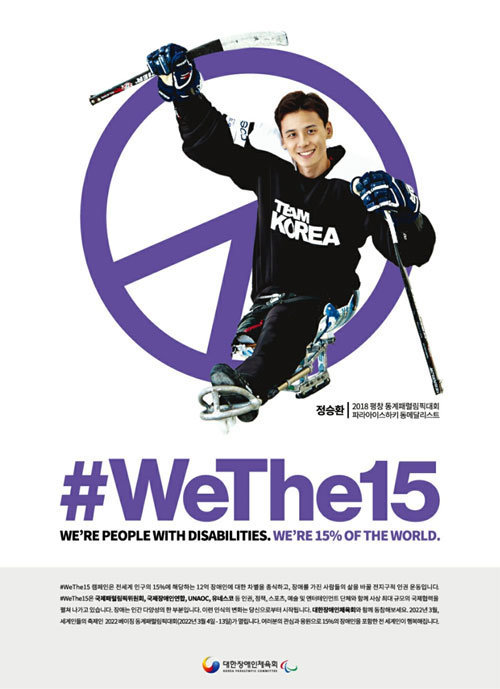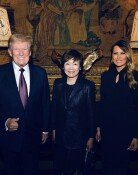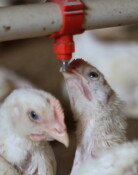Korea Paralympic Committee joins #WeThe15
Korea Paralympic Committee joins #WeThe15
Posted December. 03, 2021 07:47,
Updated December. 03, 2021 07:47

Disability is defined as a condition that damages a person’s physical functions or mental abilities, according to the Standard Korean Language Dictionary written by the National Institute of the Korean Language. If it is the case, we can say that anyone of us gets weaker over time to earn any kind of disability throughout a lifetime.
Some of us get a knee pain when they grow older, having a difficulty climbing up the stairs while others often find themselves forgetful of adding a pinch of salt to a dish. In an era where we live a longer life with illness or disease part of it than those before us, it may be an inevitable reality that all of us are likely to experience any kind of disability someday. In fact, an age group at 65 or above took up around 49.9 percent of those challenged mentally or physically registered on a database of the Ministry of Health and Welfare as of last year.
In other words, the rest 50.1 percent have lived with disabilities since earlier than a time when they are expected to become disabled according to the natural aging process. That is, around 15 percent or 1.2 billion people across the globe are handicapped in certain ways. That is where “#WeThe15” campaign came from. This awareness-raising campaign has been mounted by around 20 global organizations and institutions such as the International Paralympic Committee, the International Disability Alliance, the United Nations Alliance of Civilizations, UNESCO, etc. Since the 2020 Tokyo Summer Olympics, this campaign has grown as one of the biggest events for human rights and discrimination prevention in the history of sports.
The Korea Paralympic Committee (KPC) in South Korea has led this campaign by carrying out a flickering event with purple lights - the symbolic color of #WeThe15 and unfolding relays on social media. KPC Chairman Jung Jin-wan said, “Commemorating the International Day of Persons with Disabilities on Dec. 3, the sports field can play a key role in raising awareness of those with disabilities,” asking the government, businesses, individual citizens, and groups to pay attention to such efforts.
Kyu-In Hwang kini@donga.com
Headline News
- Joint investigation headquarters asks Yoon to appear at the investigation office
- KDIC colonel: Cable ties and hoods to control NEC staff were prepared
- Results of real estate development diverged by accessibility to Gangnam
- New budget proposal reflecting Trump’s demand rejected
- Son Heung-min scores winning corner kick







